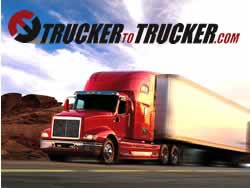 Used trucks once sold by running ads in newspapers and magazines, posting them on a public bulletin board and by word of mouth. Some people still use these methods even though they are not as effective as the Internet. The web has continued to grow attracting more and more people of all age’s everyday. Internet advertising reaches more people than any other media outlet. Online ads allow millions of people worldwide to see the product resulting in more sales and for buyers it allows them to locate better deals. It is a win situation for everyone.
Used trucks once sold by running ads in newspapers and magazines, posting them on a public bulletin board and by word of mouth. Some people still use these methods even though they are not as effective as the Internet. The web has continued to grow attracting more and more people of all age’s everyday. Internet advertising reaches more people than any other media outlet. Online ads allow millions of people worldwide to see the product resulting in more sales and for buyers it allows them to locate better deals. It is a win situation for everyone.
The web is the ideal place for truck dealers to advertise their product. An Internet experienced dealer knows hot to list their trucks to get the best results. Start by taking pictures. When a shopper is not physically on site pictures are the next thing. Take photos from every angle from the top of the truck to the bottom showing that you have nothing to hide. Post pictures of the inside of everything from the seats to the dashboard, and on the outside from the tires to clearance lights on top.
 Written text is as important as photos. List all the trucks specifications as if you were the buyer. Using this method to list your specifications and features makes it more likely that your listing will be complete. List any special or outstanding features that would attract buyers. If it is possible list the maintenance the truck has received. A detailed maintenance schedule attracts buyers because a well-maintained truck indicates the past owner has taken good care of it leaving less for the buyer to perform. Strong descriptions and pictures increase the click rate by 85 percent.
Written text is as important as photos. List all the trucks specifications as if you were the buyer. Using this method to list your specifications and features makes it more likely that your listing will be complete. List any special or outstanding features that would attract buyers. If it is possible list the maintenance the truck has received. A detailed maintenance schedule attracts buyers because a well-maintained truck indicates the past owner has taken good care of it leaving less for the buyer to perform. Strong descriptions and pictures increase the click rate by 85 percent.
Choose the online advertising site where the pictures and text will appear. Some sites allow you to set up a storefront where you decide the trucks you want to feature. A shopping cart and checkout is included that calculates the tax and shipping charges. You can list your trucks on an auction site but space is sometimes limited. There are places to set up your own website that gives you total control. Some sites charge a small fee to list your products, but because many of them already have an established audience, it is a good choice. The more exposure the trucks receive the faster they will sell.
Truck buyers and sellers save money by using the web. Sellers have little overhead, so they can sell trucks cheaper online. Buyers can browse at their leisure without traveling from lot to lot. Those who will not buy without personally looking and test driving the truck can narrow their choice down to a few. Online sales will be more successful by establishing a good reputation. Be honest about everything listed. Take pictures that show the truck as it really is and list any major flaws. Your listing is only one among many, so make sure the price you list is fair.
Make certain your contact information is accurate and easy to locate. Eliminating unnecessary e-mails or phone calls to establish the true condition of the truck will quickly put you on the favorite list of many repeat buyers. Word of mouth advertising is still the best or worst there is and is the one thing that has not changed.









